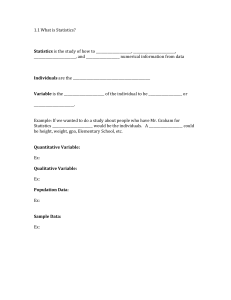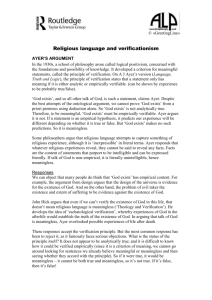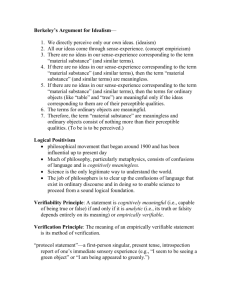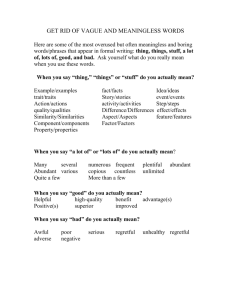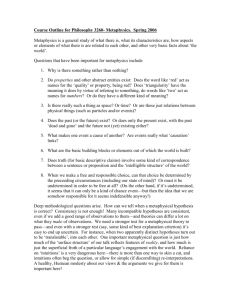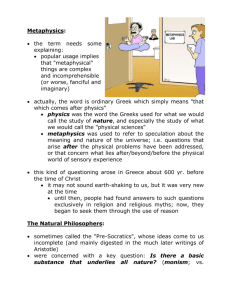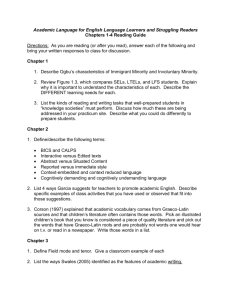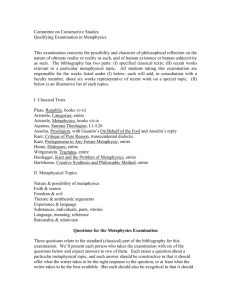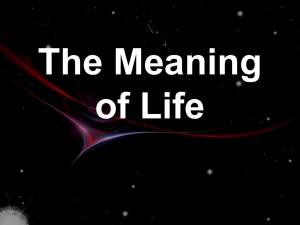CARNAP`S LINGUISTIC ANALYSIS OF METAPHYSICS
advertisement
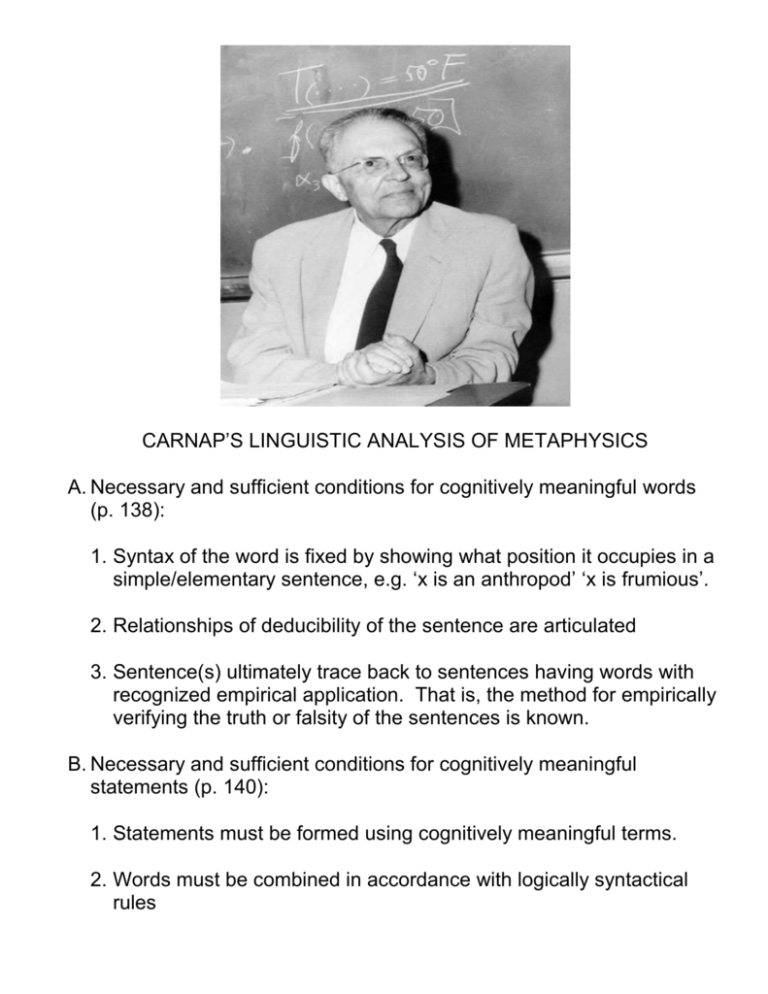
CARNAP’S LINGUISTIC ANALYSIS OF METAPHYSICS A. Necessary and sufficient conditions for cognitively meaningful words (p. 138): 1. Syntax of the word is fixed by showing what position it occupies in a simple/elementary sentence, e.g. ‘x is an anthropod’ ‘x is frumious’. 2. Relationships of deducibility of the sentence are articulated 3. Sentence(s) ultimately trace back to sentences having words with recognized empirical application. That is, the method for empirically verifying the truth or falsity of the sentences is known. B. Necessary and sufficient conditions for cognitively meaningful statements (p. 140): 1. Statements must be formed using cognitively meaningful terms. 2. Words must be combined in accordance with logically syntactical rules C. Morals of the analysis: 1. Natural language can “seduce” us into uttering meaningless statements (p. 142) 2. Cognitive meaning is something objective (p. 138) 3. Meanings are not hidden essences, which can only be grasped by supra-human intelligences (pp. 138 and 143) 4. Some uses of religious words and statements, e.g. ‘God’ or ‘God exists’, are meaningless (p. 139) 5. All metaphysical words and statements are meaningless: “Therefore no god and no devil can give us metaphysical knowledge” (p. 143) 6. All ethical and aesthetic words and statements are meaningless (p. 145) 7. There are only two types of meaningful statements: a. Analytic statements, e.g. logical and mathematical b. Empirically verifiable factual statements 8. Metaphysics is an inadequate means for expressing an attitude (worldview?) towards life: “Metaphysicians are musicians without musical ability” (p. 147)
